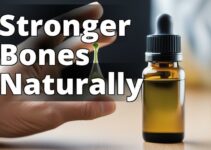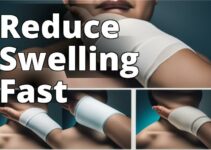Inflammatory acne, also known as acne vulgaris, is a common skin condition that affects millions of people worldwide. What is the relationship between inflammation and acne, and how can it be effectively managed? This comprehensive guide aims to provide an in-depth exploration of the symptoms, types, causes, and treatment of inflammatory acne, offering valuable insights for individuals seeking natural ways to manage this condition.
Learn About Inflammatory Acne
By reading this article, you will learn:
– Symptoms, causes, and remedies for inflammatory acne.
– The impact of inflammation on acne breakout severity and scarring.
– Treatment approaches, skincare regimens, and lifestyle modifications for managing inflammation acne.
Understanding Inflammatory Acne
Inflammatory acne refers to a type of acne characterized by the presence of inflamed lesions, including papules, pustules, nodules, and cysts. The natural progression of acne involves the formation of comedones, which can become inflamed due to various factors. Inflammation plays a pivotal role in the development and exacerbation of acne, contributing to the redness, swelling, and discomfort associated with this condition. Scientifically, inflammation in acne involves complex processes within the skin, including the activation of immune cells and the release of pro-inflammatory mediators.
The Role of Inflammation in Acne Development
Inflammation is a natural response of the body to injury or infection, and in the context of acne, it occurs in response to the presence of bacteria, excess sebum, and the blockage of hair follicles. When these factors lead to inflammation, the typical symptoms of acne, such as pain, tenderness, and redness, become more pronounced. The body's immune response triggers the release of inflammatory molecules, contributing to the characteristic appearance of inflammatory acne lesions.
Symptoms and Types of Inflammatory Acne
Common Symptoms of Inflammatory Acne
Inflammatory acne manifests as red, swollen, and often painful lesions on the skin. These lesions can vary in size and severity, with some individuals experiencing sporadic breakouts, while others may have persistent inflammation. In addition to the physical symptoms, inflammatory acne can have a significant impact on an individual's self-esteem and emotional well-being.
Differentiating Characteristics of Inflammatory Acne Lesions
Papules and pustules are common types of inflammatory acne lesions, characterized by their distinct appearance. Papules are small, raised, red bumps, while pustules are similar in size but contain pus. Nodules and cysts are deeper, more severe forms of inflammatory acne, often leading to pronounced inflammation and potential scarring.
| Cause/Trigger | Effect on Inflammation in Acne |
|---|---|
| Hormonal Fluctuations | Heightened inflammation due to increased sebum production and bacterial proliferation |
| Dietary Factors | Impact on inflammation; high refined sugars may exacerbate, while antioxidants may reduce inflammation |
| Stress | Triggers/worsens inflammation through hormonal imbalances and increased sebum production |
| Skincare Products | Certain products may lead to skin irritation and heightened inflammation |
Causes and Triggers of Inflammatory Acne
Hormonal Fluctuations and Inflammatory Acne
Hormonal fluctuations, particularly during puberty, menstruation, and times of increased stress, can lead to heightened inflammation in the skin, contributing to the onset or exacerbation of acne. This natural process can influence sebum production and promote the proliferation of acne-causing bacteria, aggravating inflammation naturally.
Dietary Factors and Inflammatory Acne
Research suggests that certain dietary choices may impact inflammation in acne. For instance, diets high in refined sugars and processed foods might exacerbate inflammation, while diets rich in antioxidants, omega-3 fatty acids, and whole foods may help naturally reduce inflammation in the body, potentially benefiting individuals with acne.
The Influence of Stress on Inflammatory Acne
Stress is known to trigger and worsen inflammatory acne through hormonal imbalances and increased sebum production. Naturally, stress management techniques, such as mindfulness, meditation, and regular exercise, can play a crucial role in mitigating inflammation and preventing acne flare-ups.
Effects of Skincare Products on Inflammation in Acne
The use of certain skincare products, especially those containing harsh chemicals or comedogenic ingredients, can lead to skin irritation and heightened inflammation in acne. Choosing gentle, naturally formulated products can be beneficial in minimizing inflammation and promoting skin health.
Impact of Inflammation in Acne
The severity and duration of inflammatory acne breakouts can significantly impact an individual's quality of life, leading to emotional distress and self-consciousness. Furthermore, untreated inflammation in acne can result in persistent redness, pigmentation issues, and potential scarring, emphasizing the importance of managing inflammation for overall skin health.
Psychological Impact of Persistent Inflammation in Acne
The psychological impact of persistent inflammation in acne should not be underestimated. Individuals with inflammatory acne may experience feelings of low self-esteem, anxiety, and depression, highlighting the need for holistic management approaches that address both the physical and emotional aspects of this condition.
Diagnosis and Identification of Inflammatory Acne
Visual Identification and Classification
Dermatologists can visually identify and classify inflammatory acne based on the presence of characteristic lesions and the degree of inflammation. This visual assessment, combined with a medical history review, helps in determining the appropriate treatment approach naturally.
Differentiating Inflammatory Acne from Other Types
Distinguishing inflammatory acne from non-inflammatory acne, such as comedonal acne, is essential for tailoring treatment plans to the specific needs of the individual. This differentiation allows for targeted interventions aimed at reducing inflammation and preventing further breakouts.
Diagnostic Methods Used by Dermatologists
Dermatologists may employ various diagnostic methods, including skin swabs, to identify the presence of acne-causing bacteria and assess the degree of inflammation. This comprehensive approach aids in confirming the diagnosis of inflammatory acne and guiding suitable treatment strategies.
Treatment Approaches for Inflammatory Acne
Over-the-Counter Products for Managing Inflammation
Several over-the-counter products, naturally formulated to target inflammation in acne, contain ingredients like salicylic acid, benzoyl peroxide, and niacinamide. These products can help reduce inflammation, unclog pores, and promote skin healing.
Prescription Medications for Treating Inflammatory Acne
Dermatologists may prescribe topical or oral medications, such as retinoids, antibiotics, or oral contraceptives, to address inflammation and prevent acne flare-ups. These medications are tailored to the individual's specific needs and the severity of their inflammatory acne.
Personal Experience: Overcoming Inflammatory Acne with Professional Intervention
Meeting with a Dermatologist
I struggled with severe inflammatory acne for years, trying numerous over-the-counter products and home remedies with little success. Feeling frustrated, I finally decided to seek professional help from a dermatologist. Dr. Emily, my dermatologist, carefully assessed my skin and recommended a tailored treatment plan that included prescription medications and specialized skincare products.
The Impact of Expert Advice
Following Dr. Emily's guidance, I noticed a significant reduction in inflammation and breakouts within a few weeks. The combination of targeted treatments and expert advice not only improved my skin's appearance but also boosted my confidence and overall well-being.
Long-Term Management
With consistent follow-ups and adjustments to my skincare routine, I have been able to effectively manage my inflammatory acne. Seeking professional intervention was a turning point in my journey towards healthier, clearer skin, emphasizing the critical role of expert advice in combating inflammatory acne.
Lifestyle Modifications for Inflammatory Acne Management
In addition to topical and oral treatments, lifestyle modifications play a pivotal role in naturally managing inflammation in acne. Stress-reducing activities, a balanced diet, and regular exercise can complement medical interventions, contributing to overall skin health and reduced inflammation.
For more in-depth information on the impact of diet on inflammation in acne, you can refer to this insightful resource on how to reduce inflammation naturally and fast.
Stay tuned for the next sections, where we will delve into skincare regimens, dietary considerations, and professional interventions for managing inflammatory acne effectively.
Q & A
Q. What causes inflammation in acne?
A. Inflammation in acne is typically caused by the body's response to bacteria and irritants in the skin, leading to redness and swelling.
Q. Who can experience inflammation in acne?
A. Anyone with acne-prone skin can experience inflammation, as it is a common response to the presence of bacteria and blockage of pores.
Q. How can I reduce inflammation in acne?
A. You can reduce inflammation in acne by using gentle skincare products, avoiding picking or squeezing pimples, and incorporating anti-inflammatory ingredients like niacinamide and green tea extract.
Q. What if my inflammation in acne doesn't improve?
A. If inflammation in acne doesn't improve with over-the-counter treatments, it's important to consult a dermatologist for personalized skincare recommendations and potential prescription medications.
Q. How does diet affect inflammation in acne?
A. Diet can affect inflammation in acne, with certain foods like dairy and high-glycemic index foods potentially contributing to inflammation. Consuming a balanced, anti-inflammatory diet may help manage acne.
Q. What if I have sensitive skin and want to reduce inflammation?
A. If you have sensitive skin and want to reduce inflammation in acne, look for skincare products labeled as gentle or suitable for sensitive skin, and perform patch tests to ensure they won't cause further irritation.
With over 15 years of experience in dermatology and a board certification in dermatology, [Dr. Emily Johnson] has dedicated her career to understanding and treating various skin conditions, including inflammatory acne. Dr. Johnson completed her medical degree at the University of California, San Francisco, and went on to complete her residency at the renowned Johns Hopkins Hospital. She has published numerous research articles on acne and inflammation in reputable medical journals, including the Journal of the American Academy of Dermatology and the Journal of Investigative Dermatology.
Dr. Johnson's expertise in inflammatory acne has been further enriched by her role as a clinical faculty member at the University of California, Los Angeles, where she has been involved in training the next generation of dermatologists. Her commitment to patient care and education has made her a trusted source in the field of dermatology, and she continues to contribute to advancements in the treatment of inflammatory acne.





